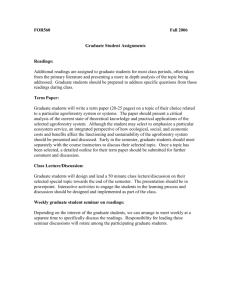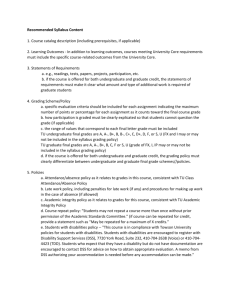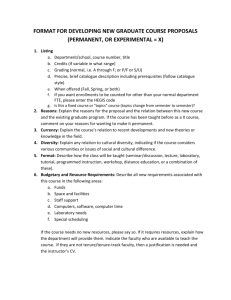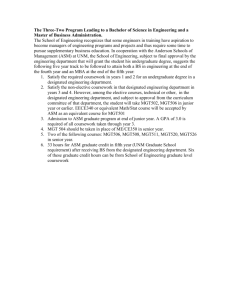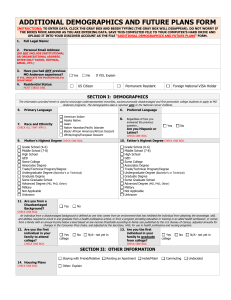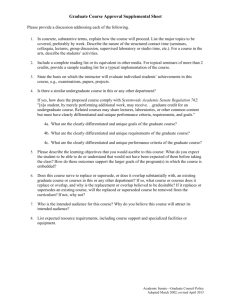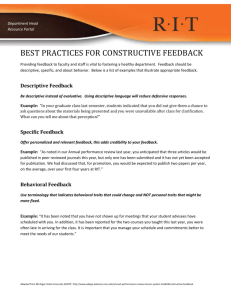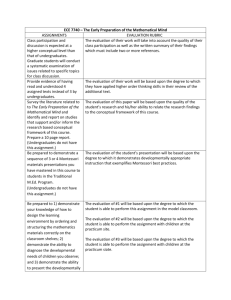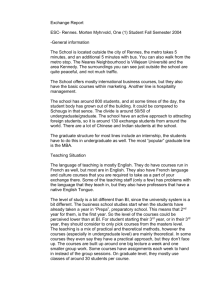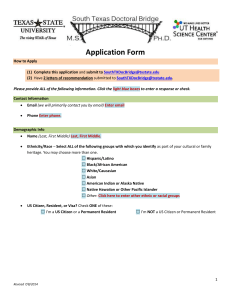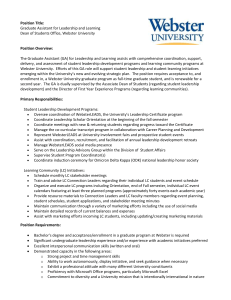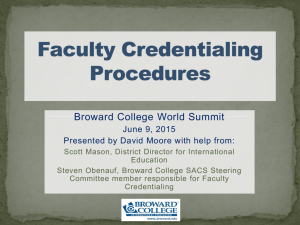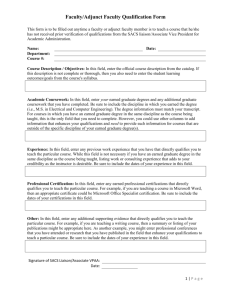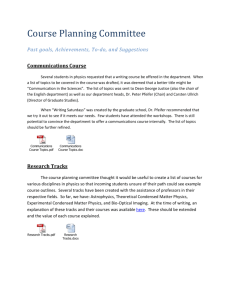CVPA Policy for Special Topics Courses DRAFT
advertisement
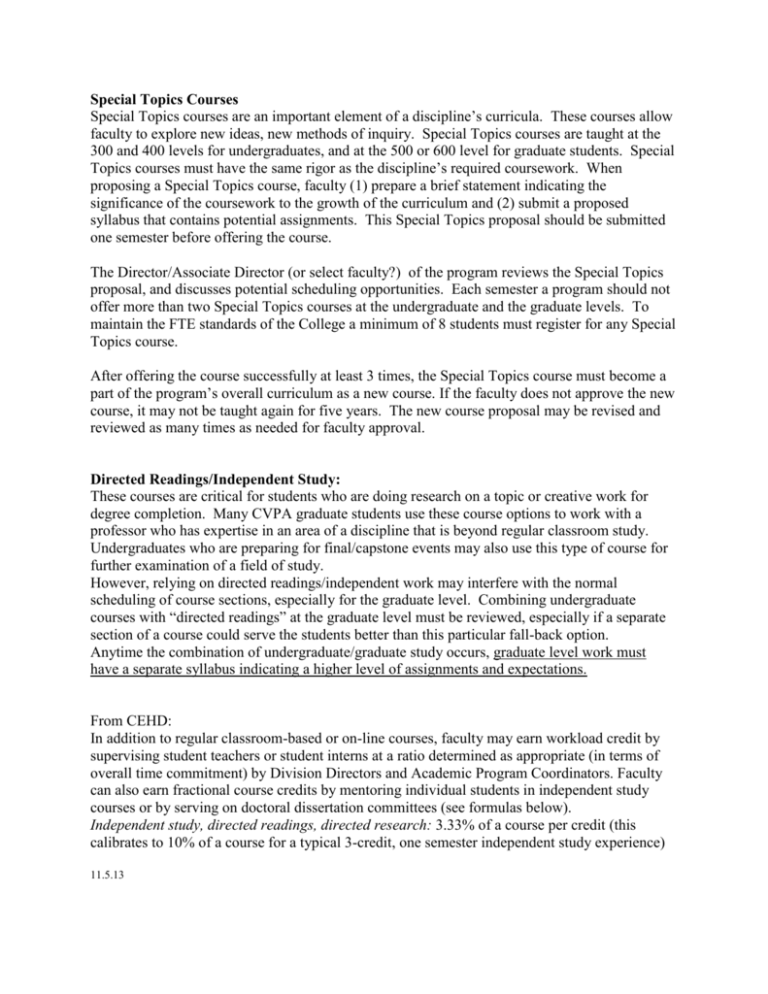
Special Topics Courses Special Topics courses are an important element of a discipline’s curricula. These courses allow faculty to explore new ideas, new methods of inquiry. Special Topics courses are taught at the 300 and 400 levels for undergraduates, and at the 500 or 600 level for graduate students. Special Topics courses must have the same rigor as the discipline’s required coursework. When proposing a Special Topics course, faculty (1) prepare a brief statement indicating the significance of the coursework to the growth of the curriculum and (2) submit a proposed syllabus that contains potential assignments. This Special Topics proposal should be submitted one semester before offering the course. The Director/Associate Director (or select faculty?) of the program reviews the Special Topics proposal, and discusses potential scheduling opportunities. Each semester a program should not offer more than two Special Topics courses at the undergraduate and the graduate levels. To maintain the FTE standards of the College a minimum of 8 students must register for any Special Topics course. After offering the course successfully at least 3 times, the Special Topics course must become a part of the program’s overall curriculum as a new course. If the faculty does not approve the new course, it may not be taught again for five years. The new course proposal may be revised and reviewed as many times as needed for faculty approval. Directed Readings/Independent Study: These courses are critical for students who are doing research on a topic or creative work for degree completion. Many CVPA graduate students use these course options to work with a professor who has expertise in an area of a discipline that is beyond regular classroom study. Undergraduates who are preparing for final/capstone events may also use this type of course for further examination of a field of study. However, relying on directed readings/independent work may interfere with the normal scheduling of course sections, especially for the graduate level. Combining undergraduate courses with “directed readings” at the graduate level must be reviewed, especially if a separate section of a course could serve the students better than this particular fall-back option. Anytime the combination of undergraduate/graduate study occurs, graduate level work must have a separate syllabus indicating a higher level of assignments and expectations. From CEHD: In addition to regular classroom-based or on-line courses, faculty may earn workload credit by supervising student teachers or student interns at a ratio determined as appropriate (in terms of overall time commitment) by Division Directors and Academic Program Coordinators. Faculty can also earn fractional course credits by mentoring individual students in independent study courses or by serving on doctoral dissertation committees (see formulas below). Independent study, directed readings, directed research: 3.33% of a course per credit (this calibrates to 10% of a course for a typical 3-credit, one semester independent study experience) 11.5.13



